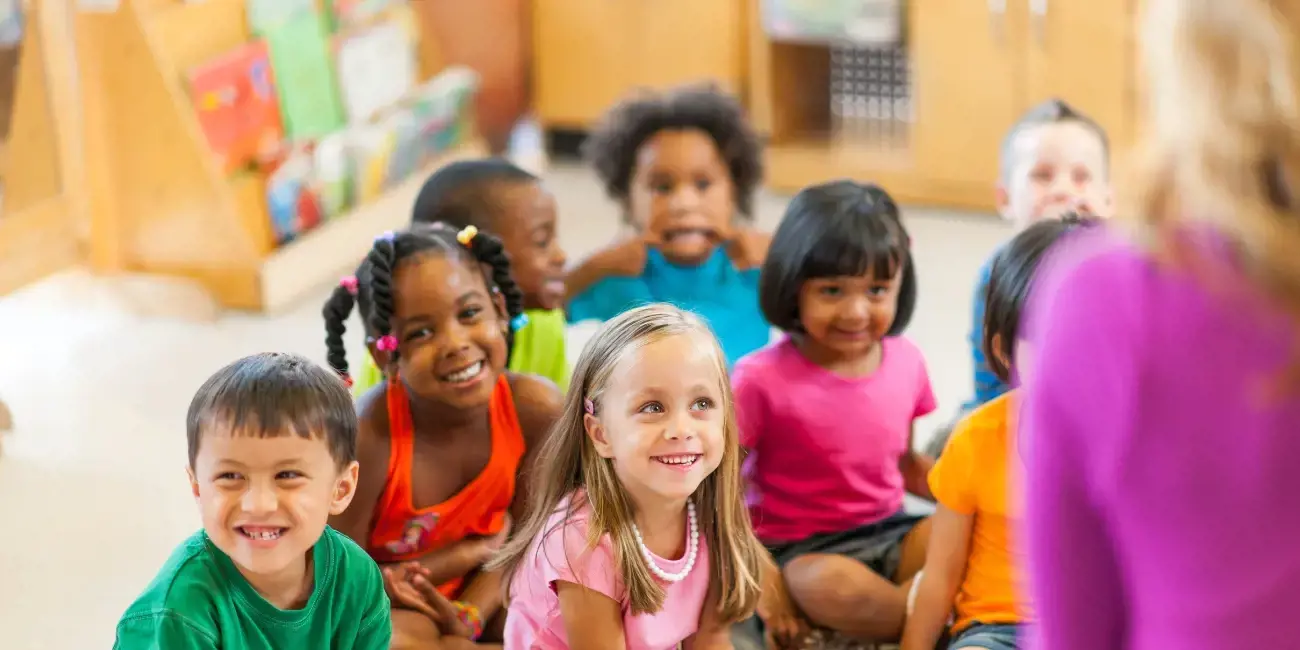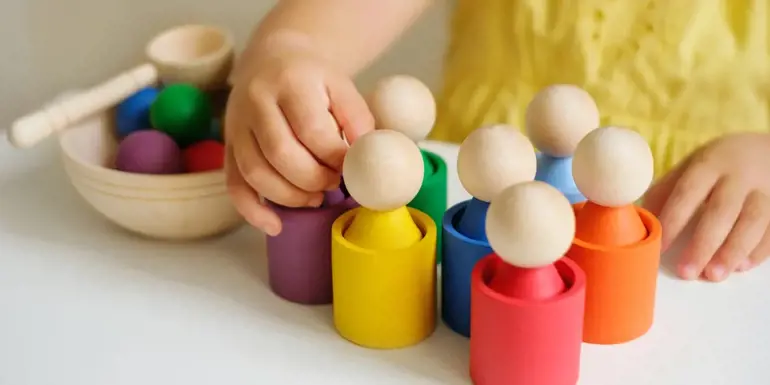So, you've shortlisted some services and you're about to head in and see it for yourself. There are a few things to keep in mind when it comes to observing childcare educators and getting a feel for how things really go down.
Early childhood educators handle things very differently in their respective settings. To get a feel for the service and an understanding of the educators, the best thing to do is to observe the staff in action.
There are a few key things to look out for, things like how educators handle transitions from one activity to another and how well the children adapt.
Children can become frustrated when they are kept waiting for something to happen but an experienced early childhood educator anticipates these moments and eases the tension with a song or an activity while an inexperienced one might struggle a little and things can quickly get out of hand.
We've put together a few things to observe closely when popping into your shortlisted services, especially in preschool rooms.
Ask yourself
Do the educators sit and work with the children as they explore new activities and try out new skills, or do they start the children out on projects and then stand back and watch?
In early childhood education, educators should actually engage with the children during these activities to give them confidence and ease them through frustrations.
Are the daily routines and activities set up in ways that allow children to make choices?
If the room is organised into different activity areas, children should be able to choose among those opportunities during free play time. This is important in an early learning centre since having materials and toys stored on shelves that are clearly labelled and easily accessible also helps children choose among various alternatives.
Are educators alert and ready to assist children with personal care routines such as eating, going to the bathroom, and dressing if they show the need for that assistance?
Children can be quite apprehensive when it comes time to go to the toilet, particularly in a new environment. It's important that they feel supported at this moment by their early childhood teacher, especially if they're still easing in at the service.
Do you see indications that staff members respect each child's individual needs?
Educators need a deeper understanding of each child's individual needs and should recognise and respond to the unique personalities and particular habits of individual children and should be careful not to play favourites.
Do the educators set appropriate and consistent limits on the children's behaviour?
Children and educators can together establish the rules they all need to follow and list them for all to see. The rules should be stated in positive terms (e.g., "We use walking feet inside" or "inside walking!"). "Time out" should be used only if the child needs to calm down and collect themselves. The child care educator should stay with the child during the time-out period, rather than leaving them in a corner by themselves.
Are children treated the same way regardless of special needs, social class, sex, racial background, or ethnic origin?
Watch to make sure that they are receiving an equal amount of positive, supportive attention from the educators. Is the classroom set up to accommodate children with special needs? Is the staff expecting the same things for girls as they do for boys? It's important that the classroom "feel" is welcoming for all children.
Do the educators greet the children when they arrive in the morning and then make an effort to integrate them into the play of the children already in the centre?
This is a difficult transition for some children, who may need special attention from the educator in order to adjust smoothly to the new environment each day.
Watch what happens at snack time and outdoors. Are the teachers actively involved with the children during these times, or do they see these as 'time off' periods for themselves?
Learning never stops and that is still true at meal and snack times. Educators should be at the tables, chatting and making food time fun and less of a chore for children - after all, they have stopped playing to eat!
While it's important for a childcare environment to have good quality educational programs that meet the standard of the national quality framework, it would be pointless without good educators.
Good preschool educators are explorers. They delight in ‘playing along' as the children lead them into worlds of fantasy and imagination. Along the way, they assist the children in finding new props for the plays they are creating. They also offer advice when conflicts occur and ask good open-ended questions that help the children expand on their ideas. Look for these interactions. If you see them, you will know you have found a talented early childhood professional.
Good educators are comfortable expressing warmth and caring toward children. They are not afraid to hold or hug or simply touch the children they work with. Ensuring that this need is met for children who spend a large part of their day in a childcare setting is especially important.
Of course, certain kinds of touching are inappropriate, but preschool children can be taught what kinds of contact are good and what kinds are not right. Educators should feel comfortable scooping children up in their arms and hugging them. Smiles, soft voices, and caring, and encouraging words are also a regular part of the childcare environment



































